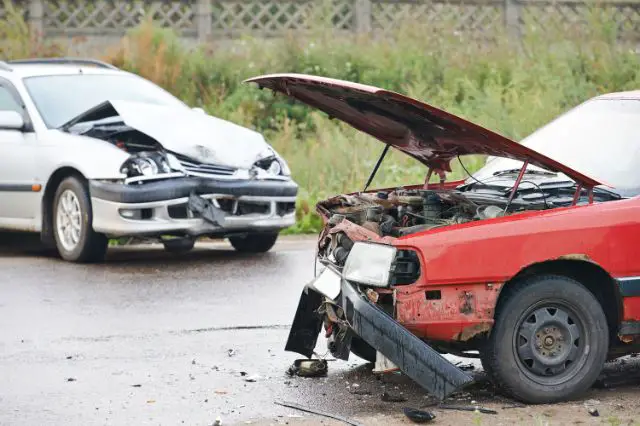4 Things You Should Know about Rear-End Car Accidents

You might know the term rear-end car wreck. You may also hear the term fender bender sometimes. It’s the same thing.
Missouri saw 1,058 car wreck fatalities in 2022, and some involved rear-end collisions. We’ll talk about rear-end crashes in the following article. You should know a few things about them if you drive frequently.
They Happen More than Other Car Wrecks
Rear-end car wrecks happen often. You might see them on roadways across America. They occur on barren highways, but more often, you can see them in traffic in inner cities and busy neighborhoods.
If you think about car wrecks, you can probably see why fender benders happen so often. If you’re not paying attention, or if some other driver isn’t, then a vehicle can strike another car’s bumper that stops up ahead. That momentary lapse causes an accident.
Distracted driving often causes rear-end collisions. Maybe you see an interesting billboard or bus stop bench with an ad on it. Perhaps you have some kids yelling or throwing things at each other in the back seat.
Maybe you and your spouse or partner have an argument, and you don’t notice the car ahead stopping suddenly. If so, you can bump its rear fender because you don’t stop in time.
At that point, you know distracted driving helped cause the wreck. Even if you’re an experienced driver, these things can happen. If you watch the road ahead and let nothing distract you, though, you probably won’t cause this accident variety.
Technology Can Stop Rear-End Collisions
Though rear-end collisions happen often, technology does exist now that can help prevent them. For instance, you can get forward collision warning tech with certain high-end and newer-model cars in 2023.
You can find some forward collision warning systems that sound a distinct noise if a car ahead stops suddenly. The car makes a beeping noise that should instantly alert you. Many times, that noise sounding means you’ll avoid hitting a car that stops suddenly, even if you’re daydreaming, checking a text message, or any other unsafe driving behavior.
Some modern cars have even more advanced forward collision technology, though. It doesn’t just sound an alert if a vehicle stops ahead of you.
In addition, it stops the car for you. The brakes automatically deploy, stopping the accident and keeping you and your passengers safe. This technology costs more, but it’s worth considering. It can save your life and potentially prevent serious harm.
They’re More Dangerous than You Might Realize
You might think that a fender bender may not hurt you or anyone else that badly. If you tap someone’s bumper when they stop suddenly, you may not hurt them or yourself. This might happen if someone stops short and your vehicle doesn’t have forward collision warnings or automatic braking installed.
However, just because you tap a vehicle ahead of you, that doesn’t mean the accident stops there. That may not hurt you or the other driver, but if you hit the car ahead of you forcefully, that might propel it forward.
If there’s a busy intersection up ahead, and you tap the rear bumper, which nudges the other car forward, a vehicle passing can hit it broadside. That’s a T-bone collision, and those sometimes cause serious injuries or deaths.
That’s why seemingly harmless fender benders can do much more damage than you might anticipate. Your location and traffic around you when you cause the accident make a huge difference.
They Often Cause Back and Neck Injuries
If you hit a car ahead of you very lightly, that might not cause any injuries. Even light contact with a car’s rear bumper can sometimes cause back and neck problems, though.
Whiplash sometimes occurs if a vehicle hits another one, and the driver and passengers jerk backward and forward abruptly. Even a low-impact, low-speed collision can cause whiplash or relatively serious injuries.
Whiplash might mean the other driver sues you if they feel certain distracted driving caused the wreck. If they must miss work for some time and they can’t collect a salary, they may demand compensation accordingly.
If the other driver proves something like your smartphone distracted you, you might end up paying them some serious money. If that happens, you can only blame yourself. You should never check your phone while driving. It’s the law.
Rear-end collisions can cause more damage than you might initially think. Remember that the next time you get behind the wheel.





